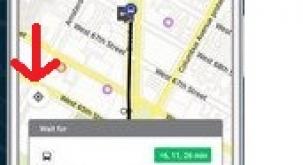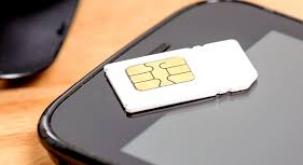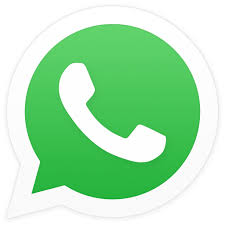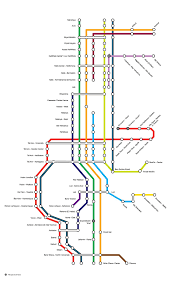Cell Phone Options and Recommended Apps
Israel: The Land of 1,207 cell phones per 1,000 people.

If you click the location button on moovit, the app will first take you to your current location. Press the button again, and it functions as a compass. When you rotate your phone, the map will rotate so you can see which way you are pointing, which is super useful when trying to navigate a foreign city.

An international plan, is usually not the most cost efficient way to have telephone and data access while in Israel. Sim cards and data plans can be purchased at any one of the abundant malls and cellphone stores located in Israel. Data plans will usually have a minimum of 8 GB of data per month, and will cost $15-40 a month.
***All interns must have cell phone access - this is crucial in communicating while in-country and for emergency purposes.***
You have a few options for cell phone coverage:
1) Buying a SIM card
The Israeli networks work with SIM cards. Students can bring an “unlocked” phone and buy a SIM in Israel to use and sign up for a month, or year, and quit whenever without penalty.
Given the recent legal reform governing cell phone contracts, “Unlimited plans” (including unlimited texts, calls, 3G internet, and even international calls to certain countries) cost about 100 nis / USD 25 per month. And best of all – no obligation.
Popular companies: HOT Mobile, Cellcom, Pelephone, Orange Israel, Amp Cellular, Hot Mobile, Golan
It is also worth noting that incoming calls and texts are free on all Israeli phone plans (just like land line phones in the US but unlike American cell phones).
You can find SIM cards at the airport, but these will be much more expensive than buying once you are in your host city. At the airport, expect to pay about 99 NIS for the SIM and 199 NIS for unlimited calling/text and 1 GB data/month. If you buy elsewhere, you can expect to pay more like 30 NIS for the SIM and 50 for the plan (unlimited call/text and 6 GB data). (Updated June '16)
a) Using your Own Phone and Buy a SIM in Israel
You will be able to buy a SIM card in any cell phone store or most convenience stores.
For most cellphone plans, you MUST obtain an “unlock code” from your American service provider to allow you to use the phone on an alternate network. Note that not all American phones can work with Israeli SIM cards, regardless of whether they are unlocked or not. If your phone’s IMEI # doesn’t start with 35 (for example, 011 or 012), your phone likely will not work with Israeli SIMs, even if you do unlock it.
Once you insert the new SIM, you will have a (new) Israeli phone number and you will no longer be able to receive calls on your American number.
b) Buy a Phone and Buy a SIM
You can buy a brick phone for about $55 USD at a cell phone store, and insert the SIM into this phone.
c) Buying the SIM in Advance
Another option is to purchase a SIM card in the U.S. You can purchase these SIM cards on Amazon or similar sites. Ensure that the SIM card is cut to fit your phone (e.g. iPhones require “micro-SIMs”.)
Once in country, you will need to buy “minutes” from a convenience store once you arrive. This isn’t the most cost effective method to getting a SIM card, but it does allow you to have a phone number and free incoming calls immediately when you land. Each time you run out of minutes/data, you will need to purchase a new “recharge/minutes” calling card.
2) Rent a Phone and/or SIM Card
There are several cell-rental companies in Israel. You can pick up these phones AT the airport, the day you arrive. You can place your order ahead of time, and pick the entire phone up there. Make sure to look for hidden fees (especially regarding returning the phone). Some students have reported being overbilled by the companies, as the rates in 2015 were NOT pro-rated, and students are charged for each monthly billing cycle.
You will need to find the best deal between the companies, but they are all pretty comparable.

Using data and Wi-Fi to make calls, Whatsapp is the best way to keep in touch with friends and family all over the world. This is the primary means of communication between MISTI coordinators and students while in-country.
Moovit
Moovit is the best way to navigate the country. Its maps are more accurate than Google Maps (not recommended for Israel). It offers a variety of routes, including the most efficient bus transfers and walking routes. It even allows you to plan trips for future times, making it useful for planning around Shabbat.

Israel Railways

Israel Railways allows you to see what trains are running and when, instead of guessing before you head to the station. Moovit isn't great for trains, so use the Israel Railways app. There is a function inside the app for it to wake you up once you reach your station.
Gett

Private taxis in Israel can be extremely expensive, and public taxi drivers don't always speak English. If you decide to call a cab, make sure to set the meter or the price before entering the car. Gett works like Uber in that it gives you the price and lets you track the driver. Gett drivers have to have good ratings in order to continue driving, so they usually offer better service than your typical cab driver. Taxis are extremely expensive and drivers can be aggressive; try to use other methods of transportation, if available.
Google translate

Although google translate isn't great for Hebrew, the app allows you to take pictures, which it then scans for Hebrew text to translate, especially helpful in grocery stores.

